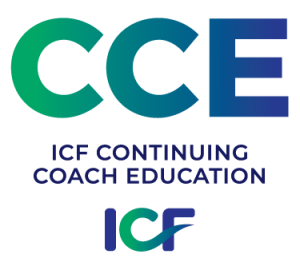Learn all about what it means to become an ICF Mentor Coach.

Embody and develop the ICF Mentor Coaching duty and competencies.
Become a mentor coach, serve your clients, your coaching community and the profession by becoming a passionate, resourceful, intelligent, curious and supportive mentor coach willing and able to forward the profession, the art and science of coaching by offering the support, guidance and wisdom needed to safeguard the quality standards of coaching in a co-learning environment guided and facilitated by ICF Master Certified Coach (MCC) Angelos Derlopas.
The International Coaching Federation (ICF) defines Mentor Coaching as providing professional assistance in achieving and demonstrating the levels of coaching competency demanded by the desired credential level sought by a coach‐ applicant (mentee). Furthermore, Mentor Coaching means an applicant (mentee) being coached on their coaching skills rather than coaching on practice building, life balance, or other topics unrelated to the development of an applicant’s coaching skill.
Mentor Coaching for an ICF Credential consists of coaching and feedback in a collaborative, appreciative and dialogued process based on an observed or recorded coaching session to increase the coach’s capability in coaching, in alignment with the ICF Core Competencies.
As an ICF Mentor Coach, your primary duty is to support the development of coaches seeking to achieve or enhance their ICF credentials. You will focus on reinforcing the ICF Core Competencies, which serve as the foundation for effective coaching and are the basis for the ICF Credentialing process.
The ICF Core Competencies
Mentor coaches should demonstrate ethical practice by upholding the ICF Code of Ethics and maintaining a commitment to ethical conduct in coaching engagements. They embody a coaching mindset characterized by a growth-oriented attitude, curiosity, open-mindedness, and continuous learning. Collaborating with clients, mentor coaches establish clear agreements about the mentor coaching relationship, process, and outcomes. They cultivate trust and safety, creating a supportive environment that fosters mutual respect, trust, and psychological safety for clients to engage fully. Maintaining presence, mentor coaches demonstrate empathy and value the client’s experience. They actively listen, utilizing powerful questions to understand the client’s perspective and encourage deeper exploration. Mentor coaches facilitate client growth by evoking awareness, helping clients develop self-awareness, identify patterns, beliefs, and potential obstacles. They also encourage clients to take action, make decisions, and set goals that align with their values, strengths, and desired outcomes.
To effectively mentor others, it is crucial to model the ICF Core Competencies in your own mentor coaching practice. This involves demonstrating a deep understanding and embodiment of these competencies. Mentor coaches should observe mentees’ coaching sessions, either through recorded sessions or live observations, and provide constructive feedback that aligns with the ICF Core Competencies. Creating a collaborative learning environment is essential, where mentees feel safe to discuss their coaching experiences, challenges, and areas for growth. Mentor coaches should encourage reflection and self-discovery, guiding mentees to identify their strengths and areas for improvement. They should also offer relevant resources, tools, and guidance to support mentees in enhancing their coaching skills and achieving their credentialing goals. Monitoring mentees’ progress throughout the mentoring process helps ensure they are making progress in developing their coaching competencies.
By embodying and developing these duties and competencies, you will serve as a valuable resource to your mentees and contribute to the ongoing growth and evolution of the coaching profession.
Purpose
Mentoring, in the context of coaching, is a vital aspect of professional development that helps coaches achieve and demonstrate the levels of coaching competency and capability demanded by the desired credential level. By engaging in a mentor coaching relationship, coaches can refine their skills, enhance their understanding of the coaching process, and align their practice with the ICF Core Competencies.
Here are some key elements of the mentoring process that contribute to the development of coaching competency and capability:
Mentor coaching should span an extended timeframe of at least three and a half months to facilitate a comprehensive learning experience for the mentee. Regular coaching sessions between the mentor coach and mentee provide opportunities for direct feedback and a deeper understanding of the ICF Core Competencies. The mentor coach observes the mentee’s coaching practice, providing constructive feedback aligned with the competencies to identify areas for improvement. Reflection and self-assessment are encouraged, enabling the mentee to recognize strengths, weaknesses, and create a growth plan. Ongoing support, guidance, and sharing of resources are provided by the mentor coach. Collaboratively setting goals and monitoring progress ensures accountability and tracks the mentee’s development in coaching competencies towards their desired credential level.
Through mentor coaching, coaches can develop the necessary skills, knowledge, and confidence to achieve their desired credential level and provide high-quality coaching services to their clients. The mentor coaching relationship not only supports the individual growth of the mentee but also contributes to the overall advancement and professionalization of the coaching industry.
Initial Credentialing
Credentialing candidates on the following paths are required to participate in Mentor Coaching prior to submitting their application:
- ACC ACSTH
- ACC Portfolio
- PCC Level 1 / ACSTH
- PCC Portfolio
- MCC Portfolio
ACC Credentialing Renewal
Coaches applying to renew their ACC Credential are required to complete an additional 10 hours of Mentor Coaching above those hours required for their initial credential.
Duties for ICF Mentor Coaches encompass a range of responsibilities designed to support the mentee’s growth and development as a coach.
Mentor coaches model effective initiation and contracting by setting clear expectations and boundaries with mentees. They work in partnership to clarify goals and measures of success. Transparent discussions about fees, schedules, and logistics create a solid foundation. Upholding the ICF Code of Ethics is essential, including informing mentees about ethical practices and the availability of the Ethical Conduct Review Board. Mentor coaches encourage mentee exploration by suggesting they interview multiple candidates to find the best match. They avoid guaranteeing specific outcomes and emphasize the mentee’s efforts and growth. Core competency development is prioritized through feedback on coaching sessions, allowing for learning and development between sessions. Specific and targeted feedback with examples is provided. Mentor coaches honor the mentee’s unique style, considering their individuality, goals, and coaching approach while supporting their mastery in coaching.
By fulfilling these duties, ICF Mentor Coaches play a crucial role in supporting the growth and development of aspiring coaches, helping them achieve their desired credential level, and contributing to the overall advancement of the coaching profession.
Personal traits of an ICF Mentor Coach play a significant role in creating a supportive and nurturing environment for the mentee’s growth and development.
An effective mentor coach establishes trust with the mentee, allowing for open and honest communication. They encourage mentees to surpass their perceived limits and embrace a broader creative process. The mentor coach models equal partnership by being open, vulnerable, and taking appropriate risks, empowering mentees to design their own learning experiences. They value partnership by allowing mentees to take charge of their growth between sessions. Genuine celebration of the mentee’s qualities, achievements, and growth is provided by the mentor coach. They feel secure in their own coaching abilities and appreciate diverse styles and approaches. A supportive environment is fostered to help mentees develop their own coaching style. Mentor coaches embrace accountability, both for themselves and their mentees, and periodically evaluate the effectiveness of the mentoring relationship.
These personal traits contribute to a productive and empowering mentor coaching relationship, helping mentees to grow, develop their coaching skills, and ultimately reach their full potential in the coaching profession.
The competencies of an ICF Mentor Coach are crucial in ensuring that the mentor coaching process is effective, impactful, and contributes to the overall development of the mentee.
An effective mentor coach possesses advanced listening skills, including the ability to discern and apply core competencies on multiple levels. They provide balanced assessments, acknowledging strengths and areas for growth. They demonstrate cultural and linguistic awareness, adapting their approach accordingly. They are knowledgeable about assessment tools used by the International Coaching Federation (ICF) and conduct holistic evaluations, considering individual competencies and overall skill level. They identify critical competencies contributing to limited impact and articulate growth gaps. Feedback provided is specific, competency-based, and delivered in a safe and trusting environment. The mentor coach offers detailed observations while considering the impact of feedback. Feedback is relevant to coaching core competencies, addressing strengths and potential areas for growth. Lastly, mentor coaches exhibit self-management, staying focused on skill assessment and minimizing personal biases.
By developing and demonstrating these competencies, ICF Mentor Coaches can effectively guide and support their mentees on their journey toward achieving coaching excellence and obtaining their desired credentials.

Become a mentor coach in 15 weeks.
This Mentor Coach Certification Program (MCCP) is designed to equip aspiring mentor coaches with the skills, knowledge, and competencies needed to provide effective mentor coaching services. The program is structured to deliver a comprehensive learning experience over 15 weeks, with a mix of online sessions, peer triad practice, personal study, and more.
Program Structure:
- Online sessions: The program includes five 2-hour and 15-minute sessions, plus an additional 1-hour session, delivered bi-weekly.
- Bi-weekly Peer Triad practice: Participants engage in peer triad practice sessions to hone their skills and receive feedback from fellow participants, deepening their understanding of the mentor coaching process and techniques.
- Personal study: Participants dedicate 15 hours to individual study, allowing them to reflect on their learning and further develop their skills.
Over the course of the 35+ hours, participants will learn about:
- Ethical challenges & dynamics: Understand the ethical considerations and challenges that may arise in the mentor coaching process.
- Mentoring feedback: Learn effective methods for providing feedback that supports the growth and development of mentees.
- Basic grading system: Familiarize yourself with the assessment tools and grading systems used in the ICF credentialing process.
- Mentor coach (MC) qualities, competencies & traits: Develop the key qualities, competencies, and traits that make an effective mentor coach.
- Observation written feedback: Learn how to provide written feedback based on observed coaching sessions, offering specific examples and guidance.
Accreditation:
This program is accredited by the International Coaching Federation (ICF) as Continuing Coach Education (CCE). Upon completion, participants will earn 10.5 CCEUs in Core Competencies and 1.75 CCEUs in Resource Development, contributing to their ongoing professional development as coaches.

Who is eligible? ICF credential holders for 4+ years.
Installments plan are available with major credit cards (Visa, MasterCard) at a slightly higher total.
Completion Certificates are issued only when the full tuition amount is paid.
There is no penalty for early payment of tuition in advance.
Read here our Programs policy.






